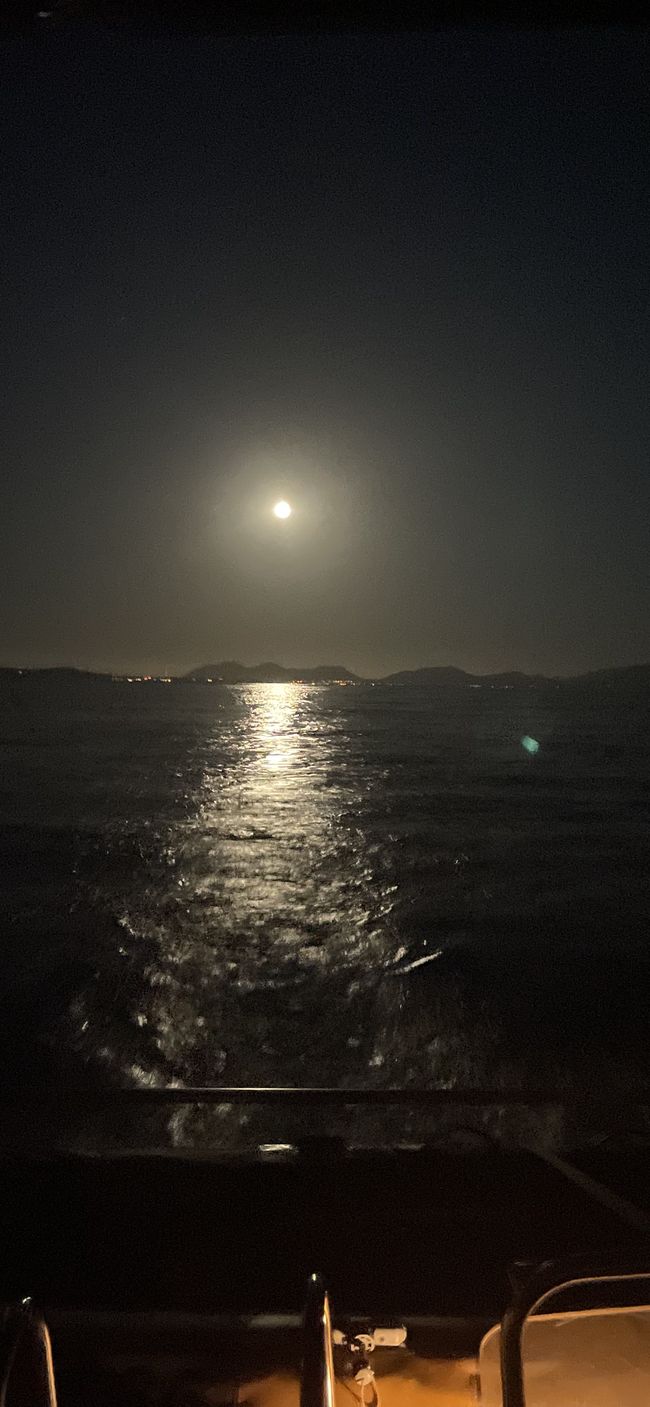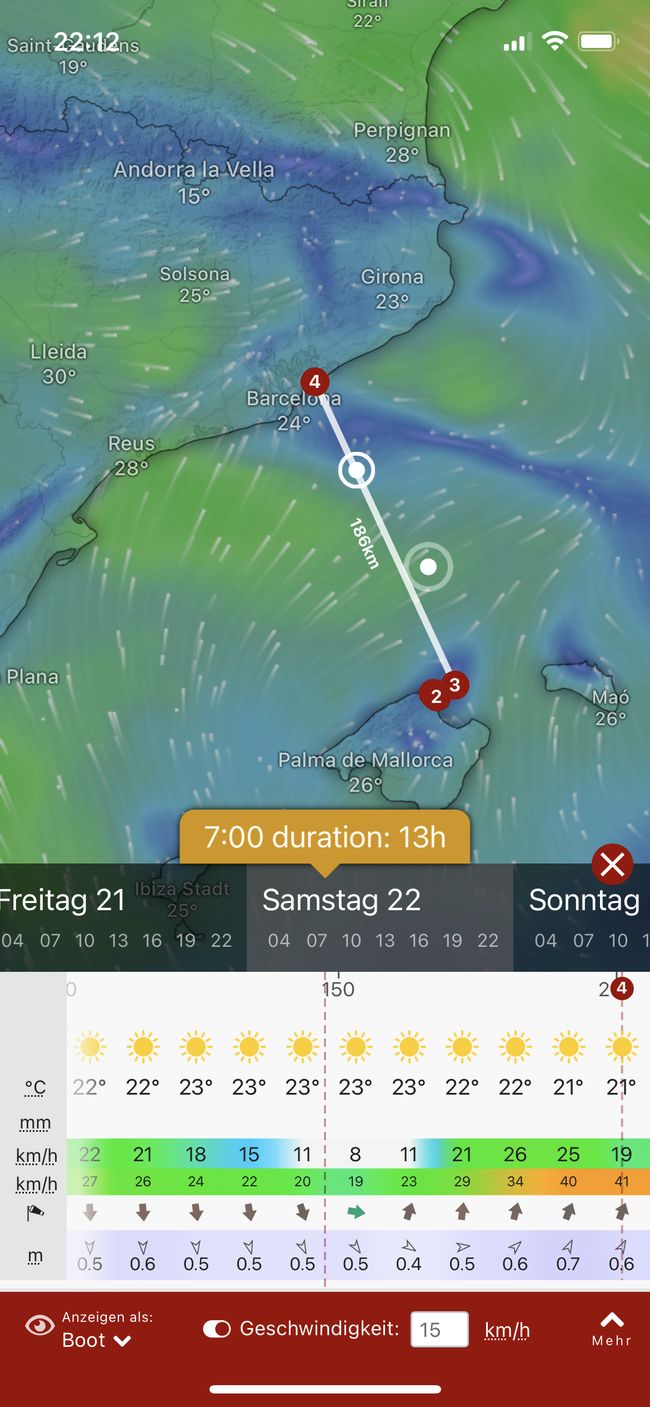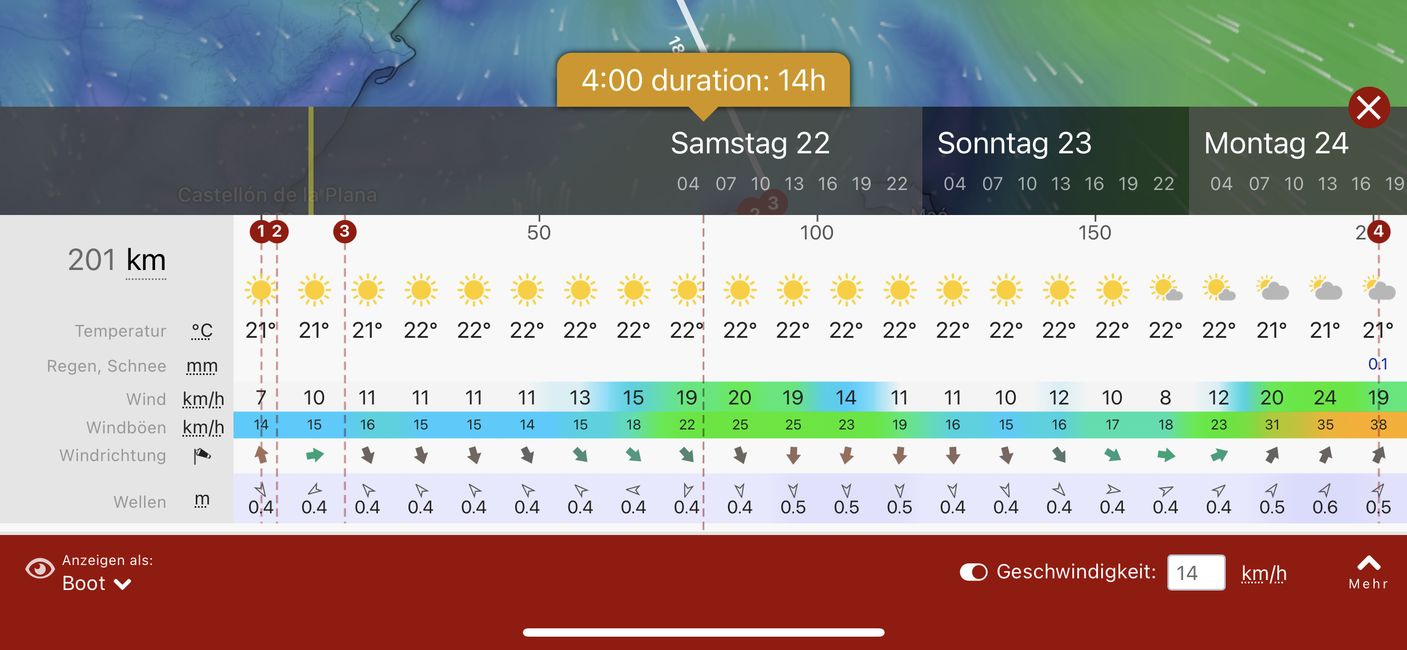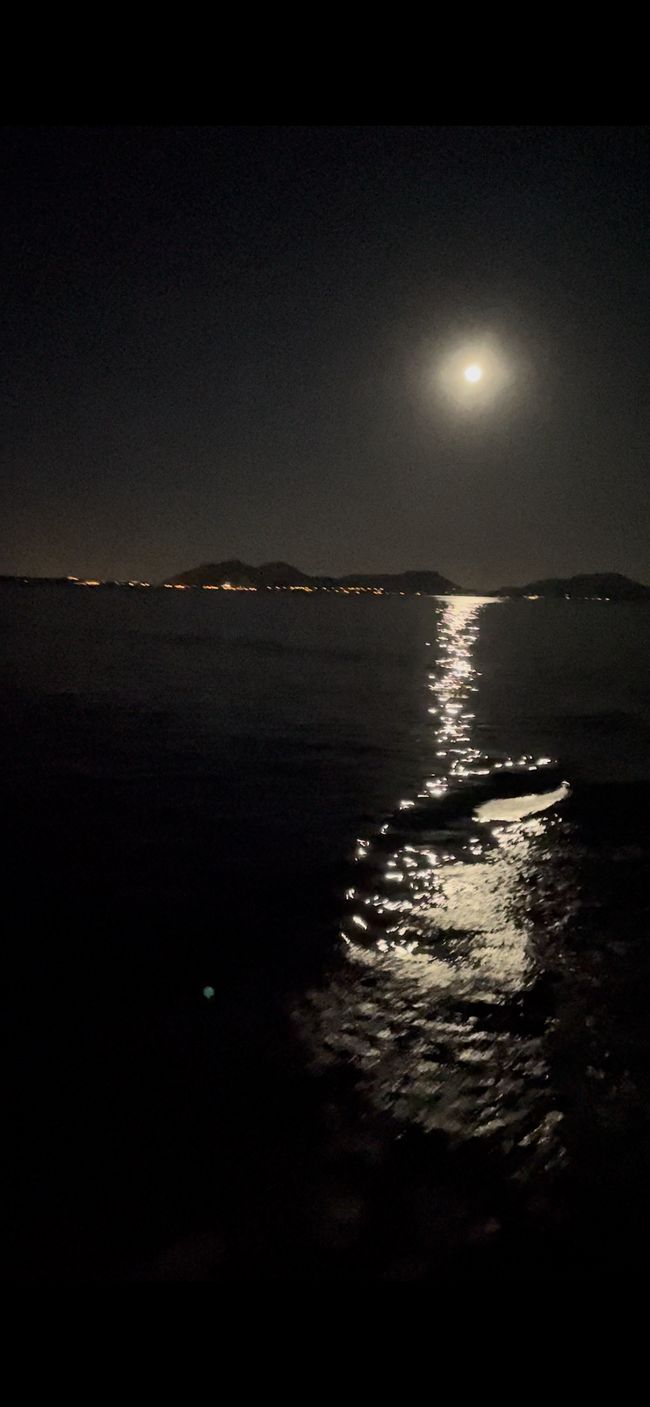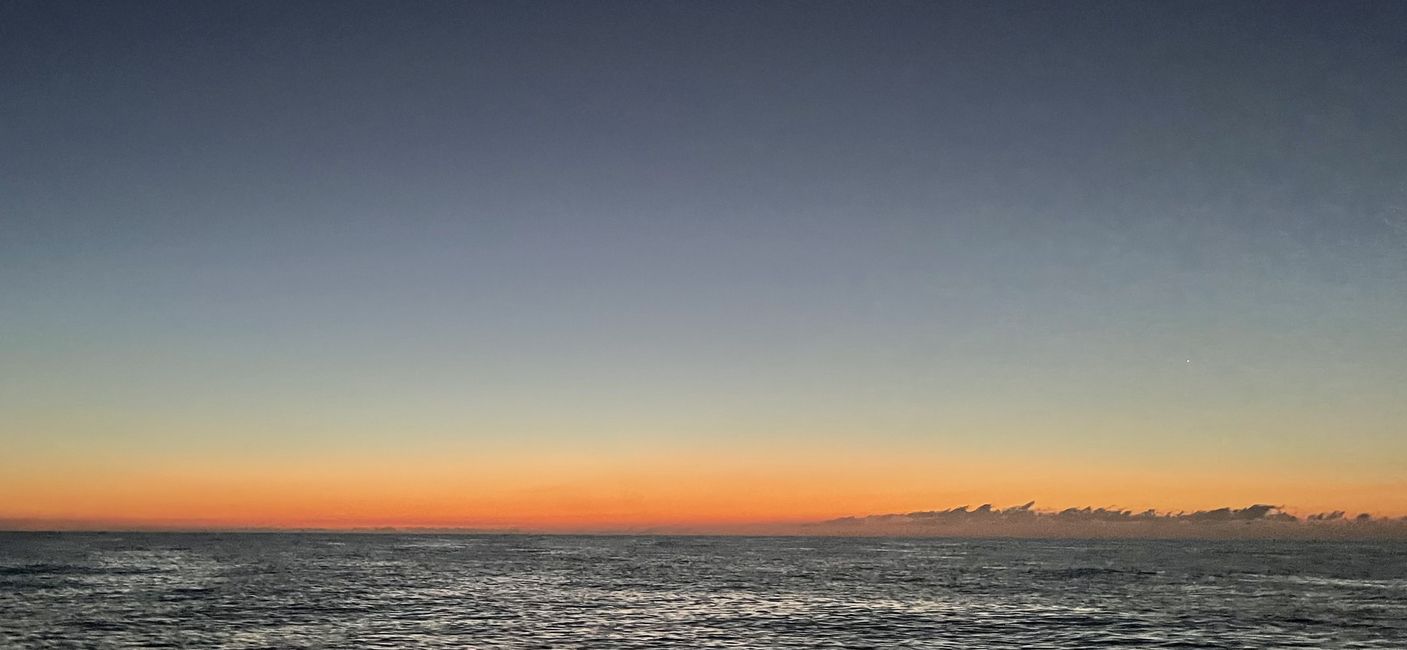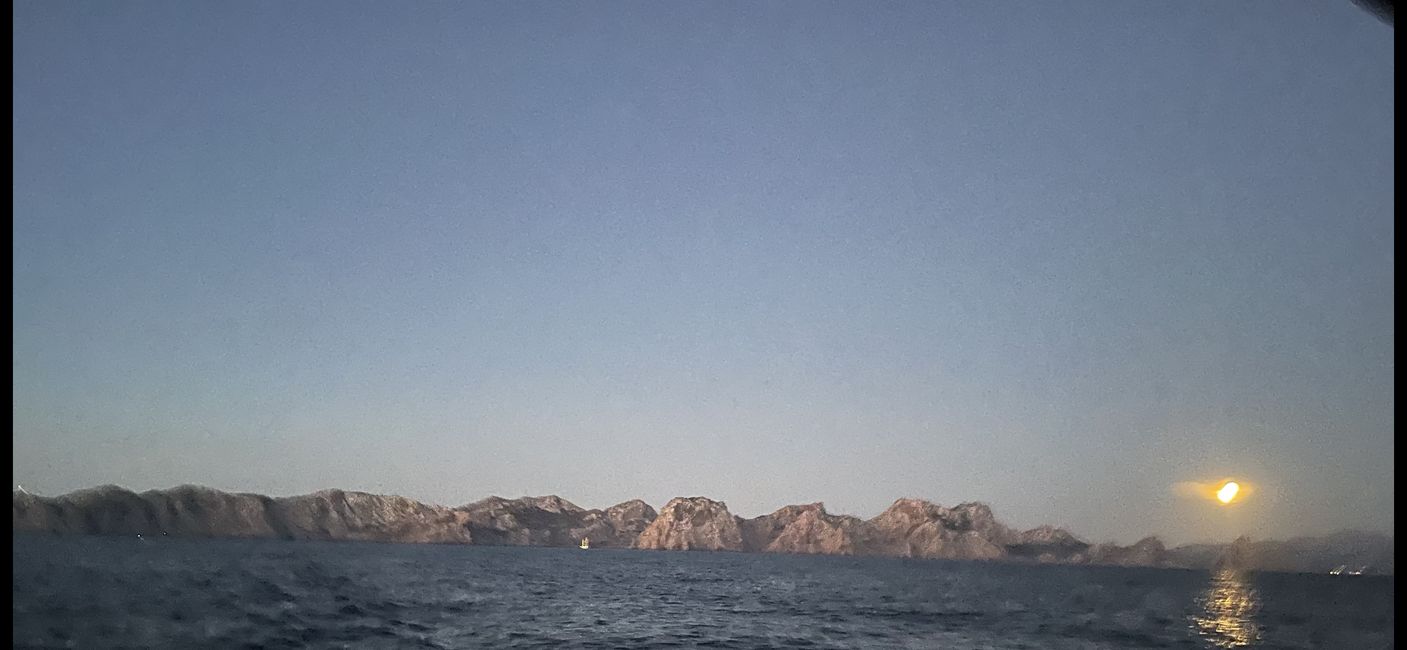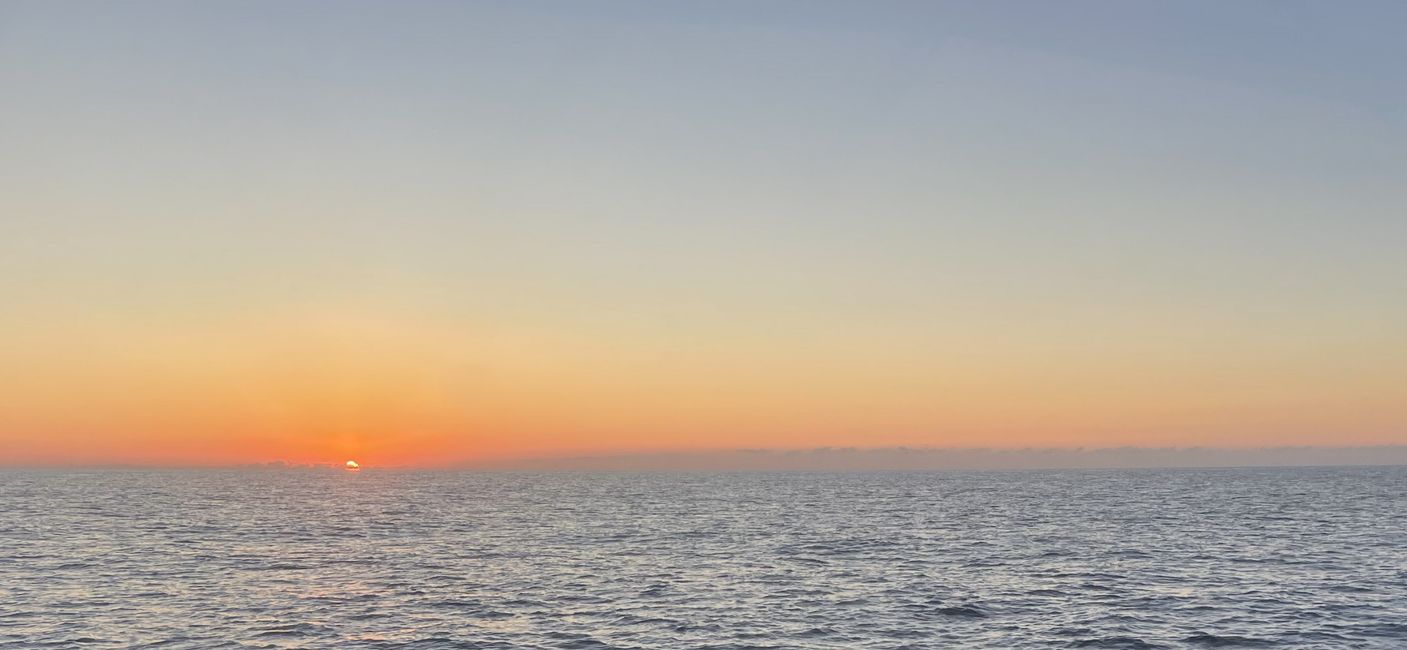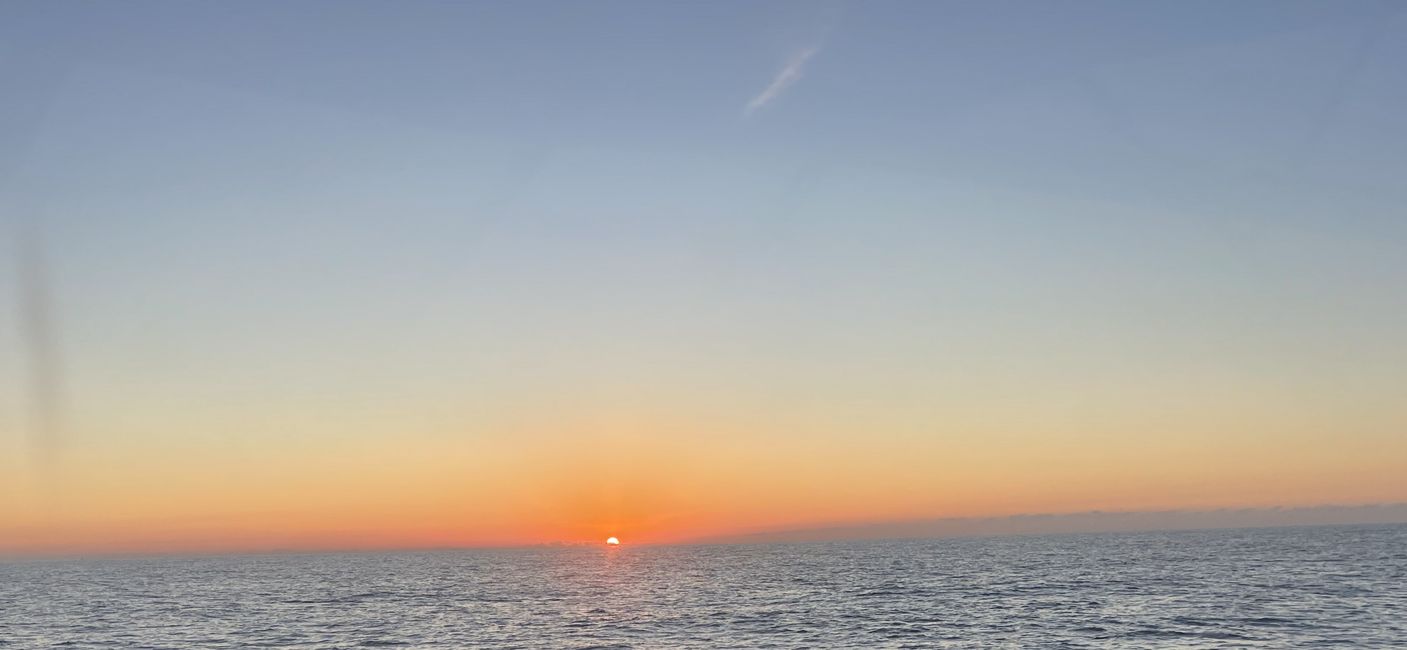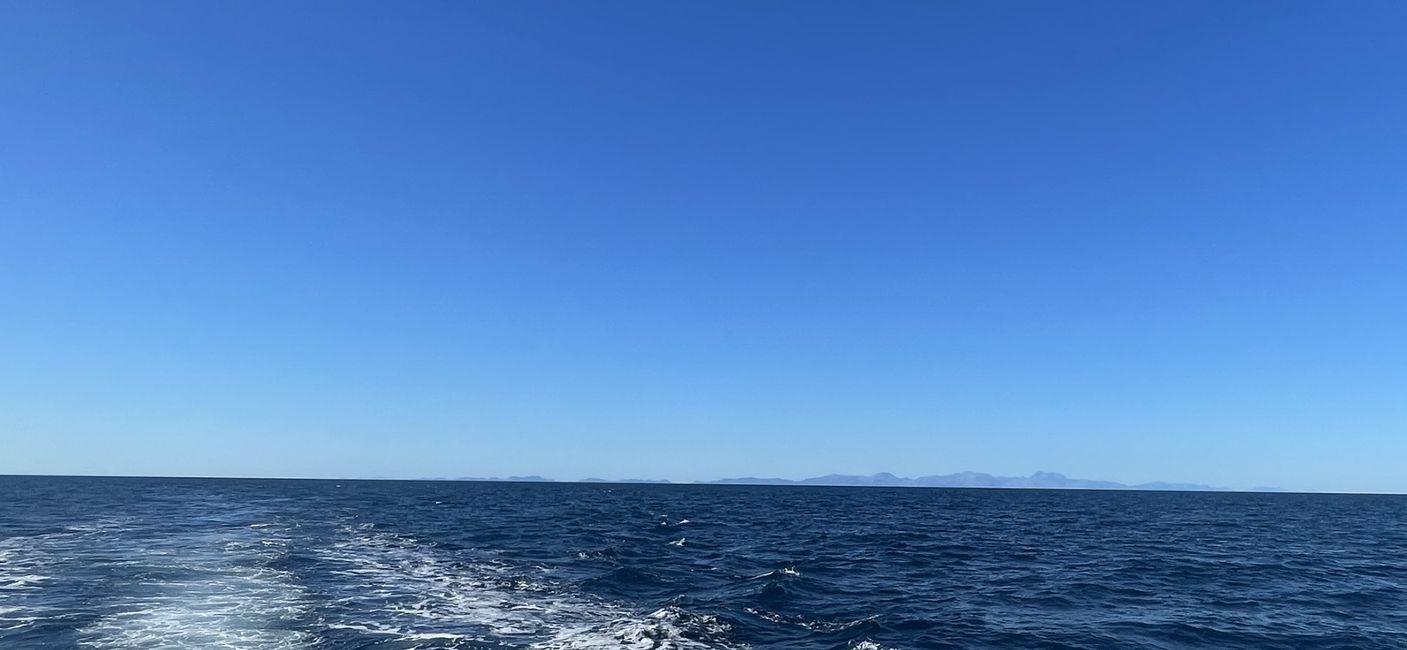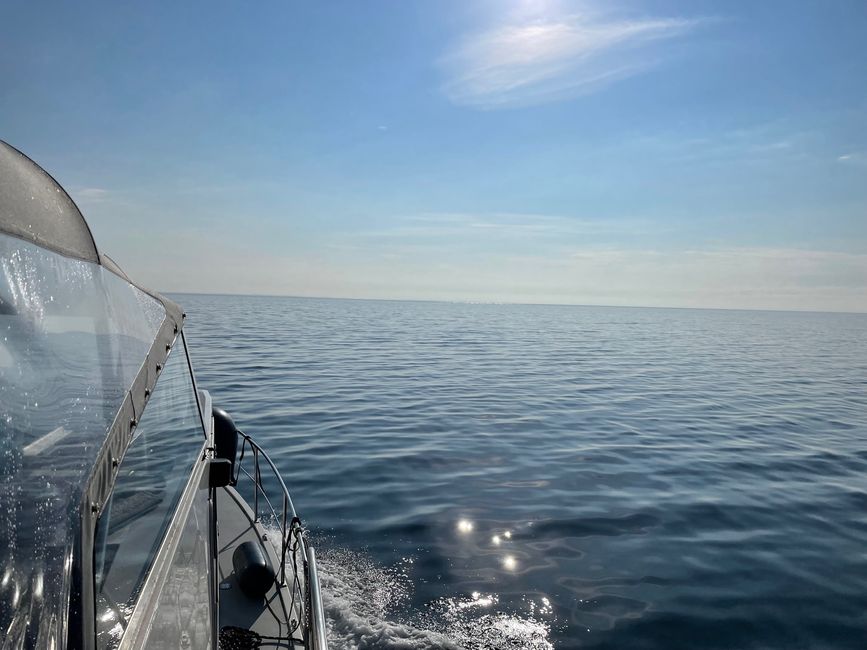
Odenwälder-auf-dem-Weg-ins-Mittelmeer
vakantio.de/odenwalder-auf-dem-weg-ins-mittelmeer
Mallorca - Barcelona, the Masnou
Wotae: 06.07.2024
Our time frame for the crossing changed every day. Saturday was now the day, and even though the forecast for the crossing to Port de Pollença on Friday was already borderline, we decided to go there on Friday. The waves were forecast to be up to 60 cm high, the wind up to 4 Beaufort, transitioning to 5. That was going to shake us up a bit, after all these values were similar to those that had been reported on the crossing for the last 1-2 hours.
When we started in Cala Radjada on Friday, the temperature sensor on the impeller pump stopped working and was in a faulty state. It turned out that this was a small technical problem that we were able to repair in Port de Pollença.
The engine had also been checked beforehand and there were no signs of weakness. Since the Baltic Sea, we had covered almost 6,000 km in the last two years without having to complain about a single major breakdown.
For us country folk, this crossing is of course a challenge, as it is the first time we are far away from the coast. The necessary radio messages were ready, we had prepared our life raft, and the flares were within reach.
After we had docked at the petrol station in Pollença and filled the tanks, we had already secured a berth, this time not with the royal ones. The wind was still strong at that time, so even the marineros thought we should wait a little longer.
But that wasn't possible, because I had a VIKO that very day and Gustav was supposed to be fixed when it started.
Everything worked out, the sensor could be attached to the impeller pump, so we ended the day early, the night should be over by 230 at the latest, we wanted to leave the harbor at 400.
We both slept well and it wasn't difficult for us to get up. We've now practiced the routines well and we set off just before 400.
During the night, some dew had settled on the windows, which we had to wipe off. We have an excellent plotter, but it's a nuisance in the dark, so it's a good thing we had an almost full moon.
My first officer stayed on deck until dusk to provide support, which was very helpful. Several fishing boats had already left the harbor before us, and we actually had a lot of traffic.
We hadn't reached cruising speed until we reached Cap de Formentor. The sea was as smooth as glass, there was no wind, and it wasn't until we got to the cape that we saw the first waves, but we had already experienced them to a much greater extent there.
At the Cape we changed direction and headed for Barcelona.
We sailed in awe over the black water of the full moon night, we experienced a fantastic sunrise, Mallorca showed its most beautiful side for a long time, the silhouette of the island was still visible against the cloudless sky after almost 100 km.
We had few encounters on the crossing, a few sailing boats came towards us early in the morning, which means that the sailors had been sailing all night long, hats off to them. One or two fishing boats were visible near the coast. 3 or 4 motorboats crossed our course at more or less distance, the Balearia ferry from Menorca to Barcelona sailed very close to our course. Around 50 km off the coast you couldn't see any land, but the clouds over the mainland were a clear sign. We used them as a reference point.
During this phase, a freighter was also sailing close to Barcelona, but we lost sight of it again for a short time. But it was only a short time before we could see land and the first ships in the anchorage outside the port of Barcelona.
At around 5 p.m. we reached our port, El Masnou. We registered by radio. The marineros were helpful and that was really necessary that day because the mooring lines had become completely tangled in our absence.
Finally, we sat in awe on our fly, were proud of our high spirits and enjoyed the beer at the dock - we did it!
A big compliment to our Gustav, he ran like a masterpiece on this route too.
Ŋuɖoɖo

